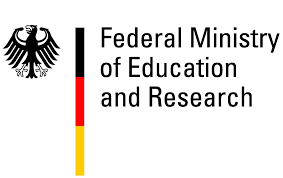Further information
Further information can be found at:
HiGHmed
Medical Informatics Initiative

Setting up a Medical Data Integration Center at MHH
Partners with medical data integration centers:
Academic partners:
And several other industry and associated partners.
The HiGHmed Project is funded by the Federal Ministry of Education and Research within the national initiative ”Medical Informatics” with 40 million euros (promotional referrence: 01ZZ1802C).

As part of the ”HiGHmed” funding project, a medical data integration center (MeDIC) is established at Hannover Medical School (MHH) in cooperation with several other university hospitals, the German Cancer Research Center and other partners in healthcare, science and industry.
Various institutes and clinics of the MHH cooperate in the MeDIC, i.e. the Peter L. Reichertz Institute for Medical Informatics, the Center for Information Management (ZIMt), the Department of Cardiology and Angiology, the Department of Gastroenterology, Hepatology and Endocrinology, the Institute for Diagnostic and Diagnostic Interventional Radiology, the Institute of Human Genetics, the Institute of Medical Microbiology and Hospital Hygiene and others.
Objectives
Primary objective of the MeDIC is the integration of multilocal, heterogeneous data within MHH to improve patient care and research.
The strategic objective of HiGHmed is to establish an infrastructure based on internationally accepted, open standards for the cross-institutional exchange of medical data in the coming years to improve patient care and research opportunities in cooperation with the partners of the HiGHmed project. To achieve this goal, data must be interoperable in the participating institutions. The conditions and necessary measures for interoperability and interchangeability of the data are therefore coordinated across the institutions (common information management). To foster patient participation from the beginning, another goal is to establish an innovative patient portal so that patients can access their own data on the course of treatment as well as further information about their disease.
Of course, data protection, data security as well as data privacy (informational self-determination) of the patients are of highest importance.
Use Cases and Advantages
The cross-institutional exchange of medical data is expected to improve patient care within three exemplary use cases:
2018-2023
Further information can be found at:
HiGHmed
Medical Informatics Initiative